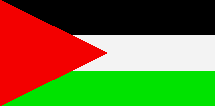





Description
Founded in 1964 as a Palestinian nationalist umbrella organization dedicated to the establishment of an independent Palestinian state. After the 1967 Arab-Israeli war, control devolved to the leadership of the various fedayeen militia groups, the most dominant of which was Yasser Arafat's Al-Fatah. In 1969, Arafat became chairman of the PLO's Executive Committee, a position he still holds. In the early 1980s, PLO became fragmented into several contending groups but remains the preeminent Palestinian organization. The United States considers the PLO an umbrella organization that includes several constituent groups and individuals holding differing views on terrorism. At the same time, US policy accepts that elements of the PLO have advocated, carried out, or accepted responsibility for acts of terrorism. PLO Chairman Arafat publicly renounced terrorism in December 1988 on behalf of the PLO. The United States considers that all PLO groups, including Al-Fatah, Force 17, Hawari Group, PLF, and PFLP, are bound by Arafat's renunciation of terrorism. The US-PLO dialogue was suspended after the PLO failed to condemn the 30 May 1990 PLF attack on Israeli beaches. PLF head Abu Abbas left the PLO Executive Committee in September 1991; his seat was filled by another PLF member.
Activities
In the early 1970s, several groups affiliated with the PLO carried out numerous international terrorist attacks. By the mid-1970s, under international pressure, the PLO claimed it would restrict attacks to Israel and the occupied territories. Several terrorist attacks were later carried out by groups affiliated with the PLO/Fatah, including the Hawari Group, the Palestine Liberation Front, and Force 17, against targets inside and outside Israel.
Strength
See numbers for affiliated groups.
Location/Area of Operation
Israel occupied the West Bank, Gaza Strip, Golan Heights, and East Jerusalem during the 1967 War. The West Bank and Gaza Strip are now administered to varying extents by Israel and the Palestinian Authority (PA). Pursuant to the May 1994 Gaza-Jericho agreement and the September 1995 Interim Agreement, Israel transferred most responsibilities for civil government in the Gaza Strip and parts of the West Bank to the PA. In January 1996, Palestinians chose their first popularly elected government in democratic elections, which were generally well-conducted. The 88-member Council and the Chairman of the Executive Authority were elected. The PA also has a cabinet of 20 appointed ministers who oversee 23 ministries. PA Chairman Yasir Arafat continues to dominate the affairs of government and to make major decisions. Most senior government positions in the PA are held by individuals who are members of, or loyal to, Arafat's Fatah faction of the Palestine Liberation Organization (PLO).
External Aid
See affiliated groups. Accurate public information on financial support for the PLO by Arab governments is difficult to obtain.
